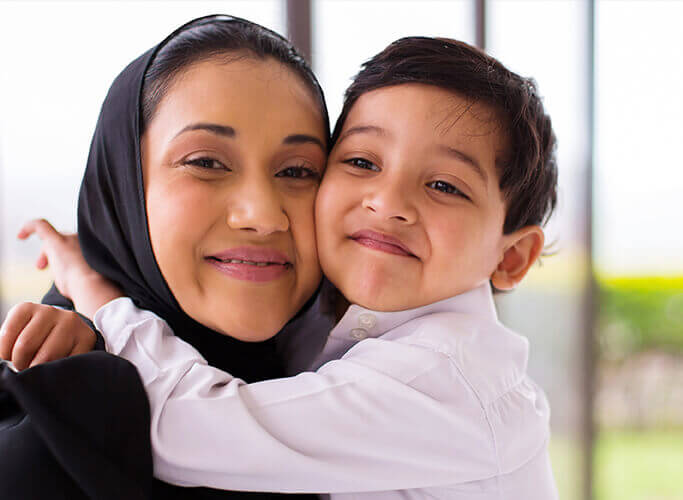The Sleep Lab accurately study cases of obstructive sleep apnea and other sleep related respiratory disorders caused by a variety of airway diseases and conditions including large tonsils or adenoids. In addition, the sleep lab will play a critical role in studying non-respiratory sleep disorders as a result of neurological issues like central apneas or due to behavioral abnormalities.
Children with sleep problems usually have underlying illnesses or conditions. Sometimes these issues can be behavioral based but many times, simple conditions like adenoids and large tonsils that might be overlooked, end up causing sleep issues in young children. Sidra Medicine has assembled a strong team of sleep pulmonologists, physicians and technologists to address such sleep disorders. The lab works closely with departments such as pulmonology, ENT and neurology who refer patients for monitoring and observation.
The lab performs polysomnograms, known as sleep studies, to record the child’s sleeping patterns. This includes monitoring brain waves by placing sensors on the head (EEG) and the use of a breathing apparatus. The EEG which is also called a “Head Box” provides signals to the technologists who are monitoring the child overnight. Depending on the physician’s recommendation, technologies will also monitor muscle or limb movements; heart rate; and blood oxygen levels. The child’s movements are also recorded by night sensors and video.
The sleep labs have been designed to make the children as comfortable as possible, as if the children are going to sleep in their own beds at home. The team works closely with child life professionals to provide child friendly and child focused care to help the children relax and go to sleep. We encourage parents to bring in their kid’s favorite night time story or toy. We expect the parents to be active participants during the child's stay in the lab and allow one of them to stay overnight. We even have female technicians monitoring the lab so that female patients and/or mothers accompanying the child can feel comfortable.
All recordings and test results from the child’s sleep study are then analyzed by the technologist and interpreted by the Sleep Lab team. Results are then discussed with the parents along with a treatment plan during a follow up appointment.


